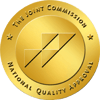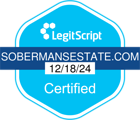For many, alcohol has been a crutch in social settings, easing nerves and silencing inner doubts. But for those in recovery, navigating social situations without the "liquid courage" can feel daunting, even overwhelming. Social anxiety often goes hand-in-hand with sobriety, but it’s important to remember that confidence is not found in a drink—it’s acquired within.%20(1)-1.png?width=672&height=480&name=(672%20x%20480%20px)%20(1)-1.png)
Here are some practical strategies to help you overcome social anxiety and build confidence in sobriety:
1. Start Small and Build Up
You don’t need to dive headfirst into large gatherings. Begin with smaller, more manageable social settings, like meeting one or two trusted friends for coffee or joining a small group activity. Starting small allows you to gradually build your comfort zone without feeling overwhelmed.
2. Plan Ahead
Preparation can significantly ease anxiety. If you're attending an event, visualize the setting, the people, and possible conversations. Have a non-alcoholic drink option in mind—many events now offer mocktails or alcohol-free alternatives. Include an “Exit Plan” in your plan – if you are driving with others include them in your plan and agree that if you are triggered you will leave according to your plan. Knowing you have a plan can provide a sense of control.
3. Bring a Support System
Having a sober friend or a trusted companion by your side can make social situations less intimidating. They can act as a buffer, help initiate conversations, and provide reassurance when needed.
4. Practice Mindfulness and Breathing Techniques
Social anxiety often triggers a fight-or-flight response, but grounding yourself in the present can help. Before entering a social situation, take a few minutes to practice deep breathing or mindfulness exercises. Focus on the sensations of your breath, your surroundings, and the moment. This can calm your nerves and reduce anxiety.
5. Shift Your Perspective
Remember that most people are too preoccupied with their own thoughts to focus on you. Instead of worrying about how you’re being perceived, focus on being curious about others. Ask open-ended questions, listen actively, and show genuine interest. This shifts your attention outward and reduces self-consciousness.
6. Create a Positive Affirmation or Mantra
Affirmations can be powerful tools for building confidence. Before a social event, repeat a mantra such as, “I am enough,” or, “I am calm, confident, and in control.” Positive self-talk can help reframe your mindset and reduce negative thought patterns.
7. Set Boundaries
Not every social situation is worth your time or energy, especially if it threatens your sobriety or peace of mind. It’s okay to decline invitations or leave early if you feel overwhelmed. Protecting your mental health is a sign of strength, not weakness.
8. Celebrate Small Wins
Each social interaction you navigate without alcohol is a victory. Celebrate these moments, no matter how small they may seem. Over time, these wins will build your confidence and reinforce your ability to handle social situations sober.
9. Seek Professional Support if Needed
If social anxiety feels unmanageable, consider working with a therapist or counselor who specializes in anxiety or addiction recovery. Cognitive-behavioral therapy (CBT), for example, can provide tools to help you reframe negative thoughts and develop effective coping mechanisms.
10. Practice Self-Compassion
Above all, be kind to yourself. Overcoming social anxiety is a process, and it’s okay to feel uncomfortable at times. Acknowledge your courage for facing these challenges head-on and remind yourself that growth takes time.
Rediscovering the Joy of Connection
Navigating social situations without alcohol isn’t just about avoiding anxiety—it’s about rediscovering authentic connection. In sobriety, you have the opportunity to engage with others fully present and true to yourself. Each social interaction becomes a step toward building genuine relationships and embracing life without the fog of alcohol.
Sobriety is a journey of self-discovery, and learning to navigate social anxiety is a meaningful part of that path. With practice, patience, and perseverance, you can face social situations with confidence and emerge stronger than ever.
If you or a loved one is seeking support on the journey to recovery, Soberman's Estate provides a safe and compassionate environment to rediscover life in sobriety. Contact us today to learn more about our programs. Please call our Admissions Director for a complimentary consultation at 480-660-3474, or email info@SobermansEstate.com.
Title:






